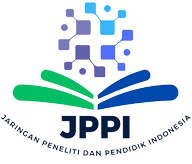Publication Ethic
The Jurnal Pendidikan dan Ilmu Fisika (JPIF) is committed to maintaining high ethical standards in the publication process. As a peer-reviewed platform and authoritative source of knowledge, the journal publishes original research papers, review articles, and case studies in physics and physics education that have not been published elsewhere in any language nor are under review for publication in another journal. This statement outlines the ethical responsibilities of all parties involved in publishing an article in this journal, adhering to the principles of the Committee on Publication Ethics (COPE) Best Practice Guidelines for Journal Editors.
Duties of Authors
-
Reporting Standards
Authors are expected to present an accurate account of their original research and provide an objective discussion of its significance. Results must be reported honestly without fabrication, falsification, or inappropriate manipulation of data. Manuscripts must include sufficient detail and references to enable replication of the work. Fraudulent or knowingly inaccurate statements constitute unethical behavior and are unacceptable. -
Originality and Plagiarism
Authors must ensure their submitted work is entirely original. Proper citations and acknowledgment of other works, including their own previously published works, must be provided. Text copied verbatim from another source must be enclosed in quotation marks and appropriately cited. -
Multiple, Redundant, or Concurrent Publications
Authors must not submit the same manuscript to more than one journal at the same time. Publishing redundant or duplicate manuscripts without clear identification and cross-referencing is considered unethical. -
Acknowledgment of Sources
Authors must acknowledge all sources of data and provide proper citations for publications that influenced their work. -
Authorship of the Paper
Authorship must reflect significant contributions to the conception, design, execution, or interpretation of the research. All contributors should be listed as co-authors, and all co-authors must agree to the final manuscript and its submission. -
Disclosure and Conflicts of Interest
Authors must disclose any financial or other conflicts of interest that could influence their work's interpretation or results. All sources of funding must be acknowledged. -
Fundamental Errors in Published Works
If significant errors are discovered in a published work, the author is obligated to promptly inform the editor and cooperate in retraction or correction. -
Hazards and Human or Animal Subjects
Authors must clearly state if their research involves hazardous materials, procedures, or equipment and ensure compliance with ethical standards for research involving humans or animals.
Duties of Editors
-
Publication Decisions
Editors are responsible for deciding whether to accept, reject, or request revisions for manuscripts, based on their importance, originality, and relevance to the journal. Editors must follow the journal’s policies and legal standards, including copyright and plagiarism laws. -
Review of Manuscripts
Editors ensure that all manuscripts undergo fair and unbiased peer review and select reviewers with relevant expertise, avoiding any conflicts of interest. -
Fair Play
Manuscripts are evaluated solely on their intellectual content, without discrimination based on the authors’ race, gender, religion, ethnicity, or citizenship. -
Confidentiality
Editors must ensure confidentiality of all submitted manuscripts and associated data. -
Disclosure and Conflicts of Interest
Unpublished information from manuscripts must not be used by editors for personal gain. Editors should not make decisions on papers where they have conflicts of interest.
Duties of Reviewers
-
Confidentiality
Reviewers must treat submitted manuscripts as confidential and must not disclose information from them to others without the editor's permission. -
Acknowledgment of Sources
Reviewers must ensure that authors have appropriately cited all relevant work and must report to the editor if any plagiarism or ethical concerns are identified. -
Standards of Objectivity
Reviews must be objective, constructive, and supported with clear arguments to improve the manuscript. -
Disclosure and Conflicts of Interest
Reviewers must disclose any conflicts of interest and should not use unpublished materials from the manuscript for their own benefit. -
Promptness
Reviewers should promptly complete their reviews and inform the editor if they are unable to meet the agreed deadline.
























